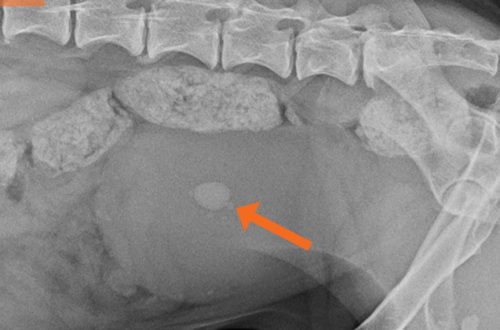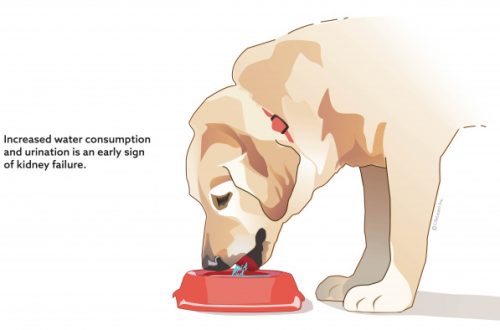
Gastroenteritis in dogs
Diseases of the digestive system can develop in any dog, regardless of breed, age and general health. The reason may be malnutrition or, for example, a hereditary predisposition. In our article, we will look at one of the most common digestive problems – gastroenteritis. What is this disease, how does it manifest itself and how to protect your dog from it?
Contents
What is gastroenteritis?
Gastroenteritis is an inflammatory process in the gastrointestinal tract that affects the mucous, submucosal and muscle layers. In the absence of correct treatment, the disease develops rapidly and passes to other organs: kidneys, heart and liver.
There are several types of gastroenteritis:
coronavirus
parvovirus
Viral
phlegmatic
Purulent
Hemorrhagic
Acute
Primary
Secondary
Chronic.
Each form of gastroenteritis can develop in a dog at any age, regardless of breed characteristics. However, young animals of small breeds are more prone to the disease.

Causes of gastroenteritis in dogs
What factors are prerequisites for gastroenteritis? First of all it is:
poor quality, inappropriate or unbalanced diet,
– Poor quality drinking water
– non-compliance with the diet,
– salts of heavy metals in the body,
– taking certain medications
– food allergies
– infectious diseases.
In the first place – an inappropriate diet and non-compliance with the diet. Incorrectly selected or insufficiently quality food, mixing ready-made diets and natural products, food from the human table, overeating, unbalanced feeding are all potential causes of gastroenteritis and other digestive problems. Every dog’s body reacts to malnutrition differently. Some disorders occur immediately, others seem to feel great for a long time, but this is only at first glance. There is a strong load on the digestive system, and the disease can arise and develop very rapidly, “pulling” several more concomitant ailments with it.
Gastroenteritis can also be caused by poisoning, a food allergy, or a severe disorder caused, for example, by food picked up on the street. Not a single pet is immune from the disease, and its well-being largely depends on the attention and responsibility of the owner.
Gastroenteritis in dogs: symptoms
The following symptoms indicate gastroenteritis:
– digestive disorders,
— diarrhea,
– nausea,
– an increase in body temperature,
– lethargy or, on the contrary, anxiety; dog may whine
– flatulence,
– belching
– an unpleasant smell from the mouth,
– weight loss,
– the presence of blood in the stool, etc.
Please note that diseases of the digestive system have similar symptoms. At home, it is impossible to find out what exactly the dog is sick with. The diagnosis is established only by a veterinarian, based on the examination and test results.
If you notice any of the above symptoms in your dog (whether it be one symptom or several), take him to the veterinarian as soon as possible. The signs should not be underestimated: they will not go away on their own, and diarrhea alone can lead to severe dehydration. The health, and possibly the life of your ward, depends on the speed of your reaction.

Treatment and prevention of gastroenteritis in dogs
Diagnosis and treatment is the sole task of the veterinarian. Do not be self-employed!
The sooner you deliver the pet to the clinic, the more likely it is to fix the problem without negative health consequences.
Depending on the nature and course of the disease, the specialist prescribes drug therapy and a therapeutic diet for the dog. While drugs act on the focus of the disease, special nutrition supplies the body with energy, balances the intestinal microflora, and improves digestion. Without a suitable diet, treatment will not be effective, so it is very important that the food is easily digestible and contributes to the elimination of the disease. An example is Monge VetSolution Gastrointestinal, a veterinary diet for dogs with digestive problems. It does not contain cereals and is easily absorbed by the body. The composition includes a special functional system with horse chestnut to normalize digestion in gastroenterological pathologies, superoxide dismutase to prevent oxidative stress, xylooligosaccharides to control intestinal microflora. The diet, as well as medications, is prescribed by a veterinarian.
In the future, when the dog is already healthy, continue to follow the recommendations of a specialist to prevent the recurrence of the disease and its transition to a chronic form.





